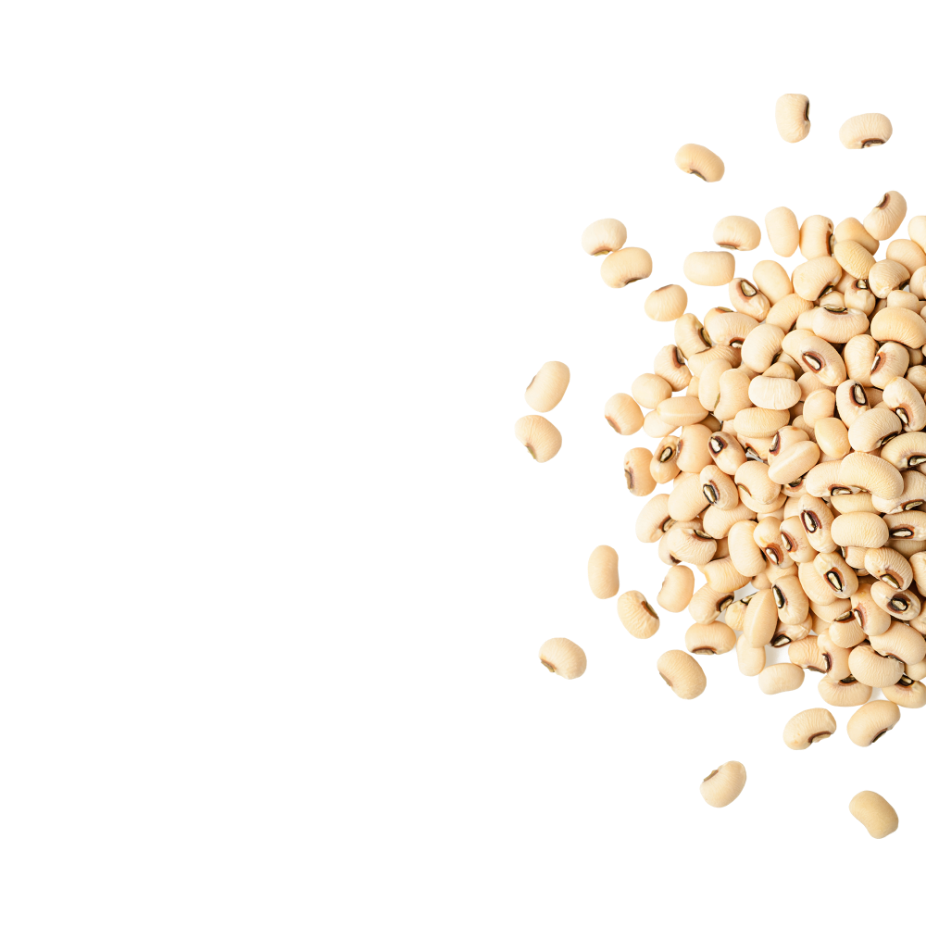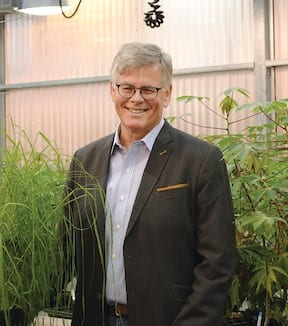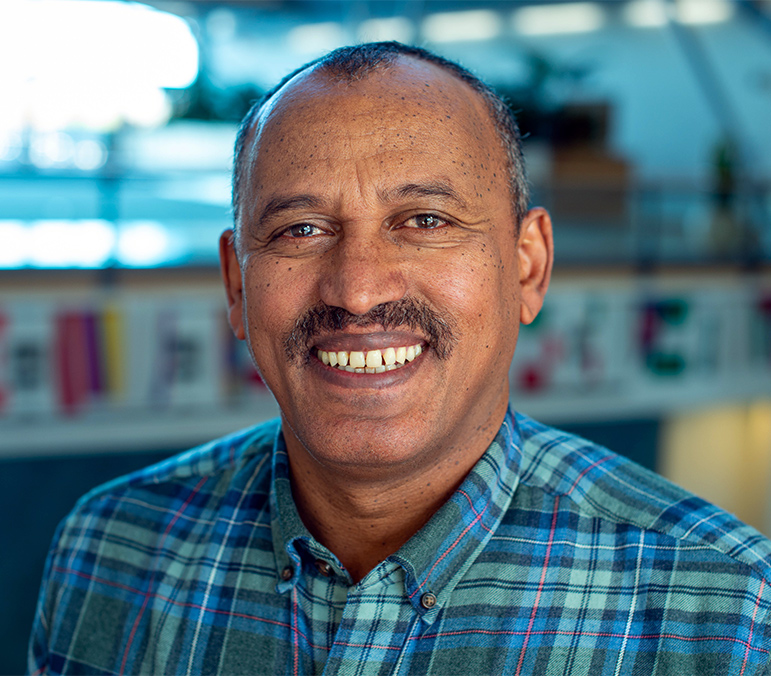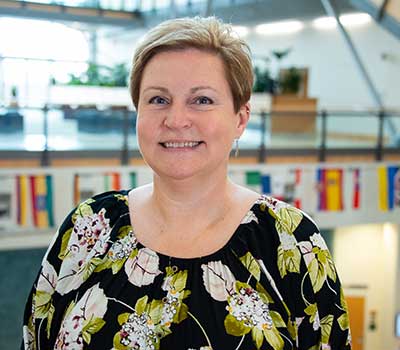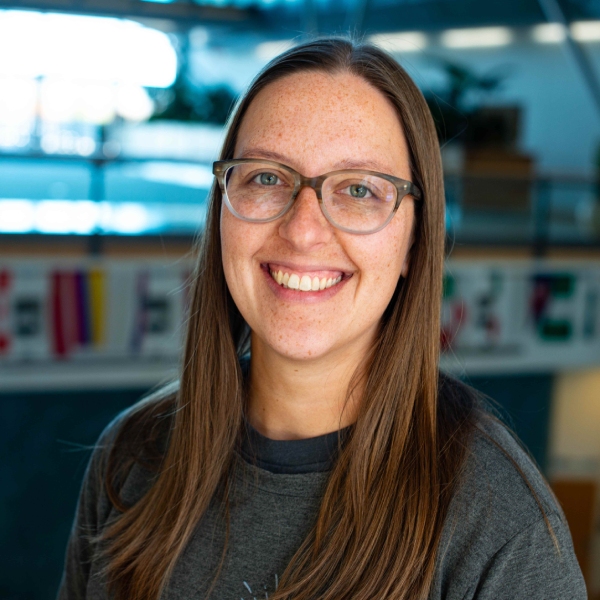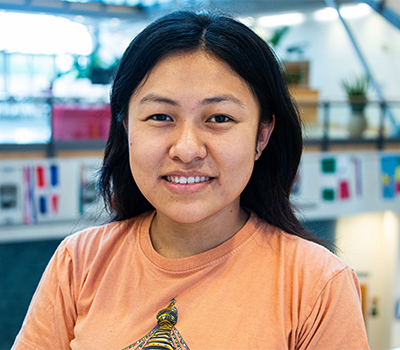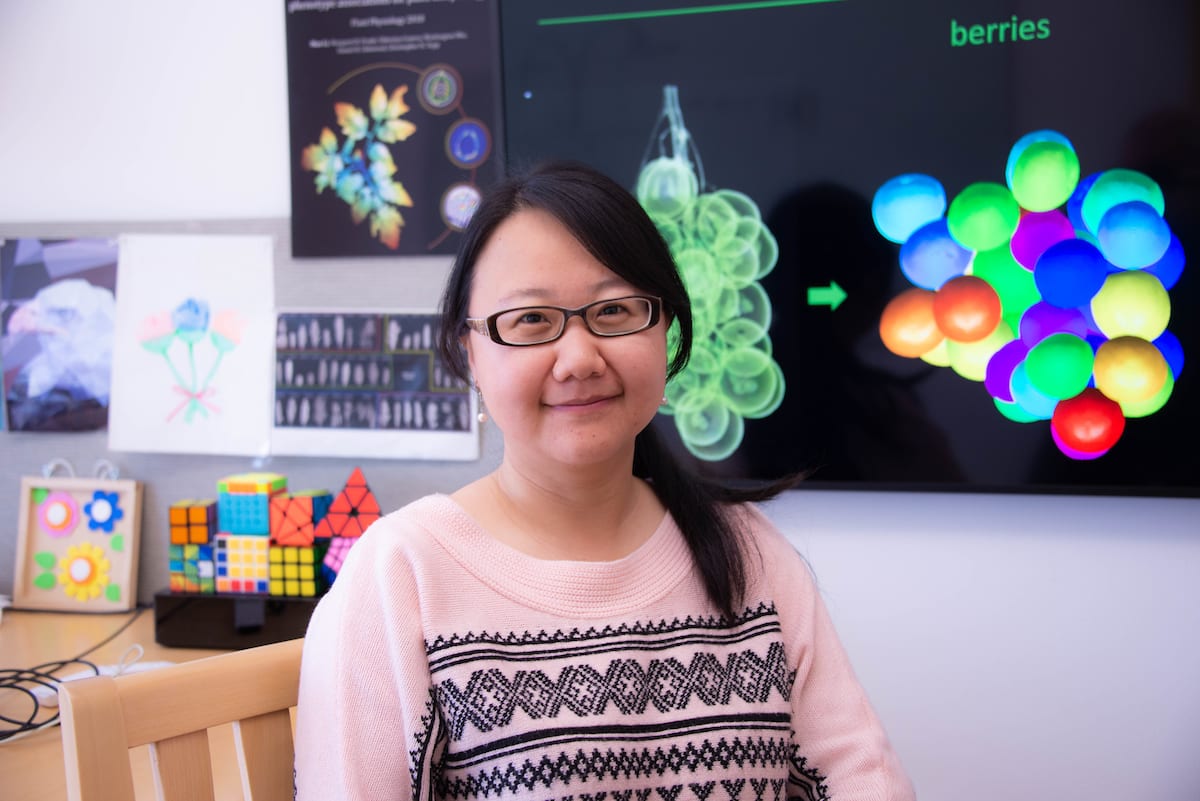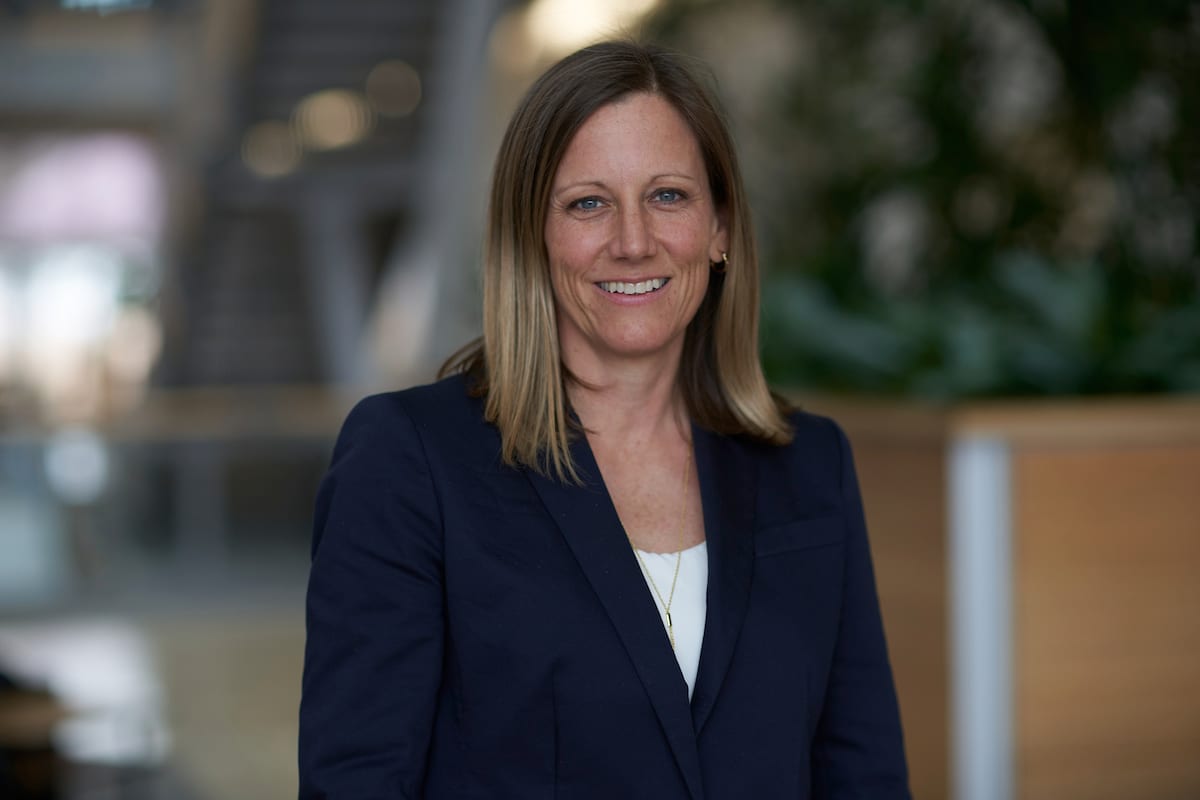A Happy Accident
Don MacKenzie has always been curious about the world around him, even though, during his early years, that world was often covered in snow.
He grew up in a town on the west coast of British Columbia called Kitimat. “It’s a Haida word meaning ‘valley of the snows,’” says Don. “We had 30 feet of snow a year.”
With a natural inclination toward math and science in school, Don studied biochemistry at the University of British Columbia, eventually completing a PhD. Don “accidentally” fell into the world of agricultural research when a friend encouraged him to apply for a position with Agriculture Canada. He did, and he began studying plant viruses. “It was interesting because it was a new area for me,” he says. “As a young scientist, it seemed fairly exotic—and I realized the work could help a lot of people.”
Since 2018, Don has been the executive director of the Institute for International Crop Improvement (IICI) at the Danforth Center.
Feeding the World
Don’s group, the IICI, translates key discoveries in plant science into new solutions for food quality and availability in the developing world. The team provides regulatory, biosafety, and project management to help move improved crop varieties into the hands of farmers. “The number of people suffering from malnutrition has actually increased since 2015,” says Don. “There are more than 800 million people who go to bed hungry every day around the world. Our work is to improve crops and bring them to market to help people live better lives.”
One of the achievements of which he is proudest of is the approval of pod-borer-resistant (PBR) cowpea by Nigeria. Cowpea, or black-eyed pea as we know it in the U.S., is the staple food of more than 200 million people in Africa, but it is susceptible to insect scourges that can destroy up to 80 percent of the crop. Thanks to regulatory support from the IICI, a new resistant variety is coming to market in 2020 to provide much-needed nutrition and nourishment to millions of people. “If we care about the wellbeing of people everywhere, then we need to care about this kind of work,” says Don.
Don is thankful for the Danforth Center, as it has provided him the freedom to explore the plant science goals he wants to achieve as well as a supportive, positive environment to do so. “Danforth Center is a fantastic place, fantastic environment. Everybody working here is really keen and excited about what they’re doing,” he says. “There is a drive to go and make a difference."
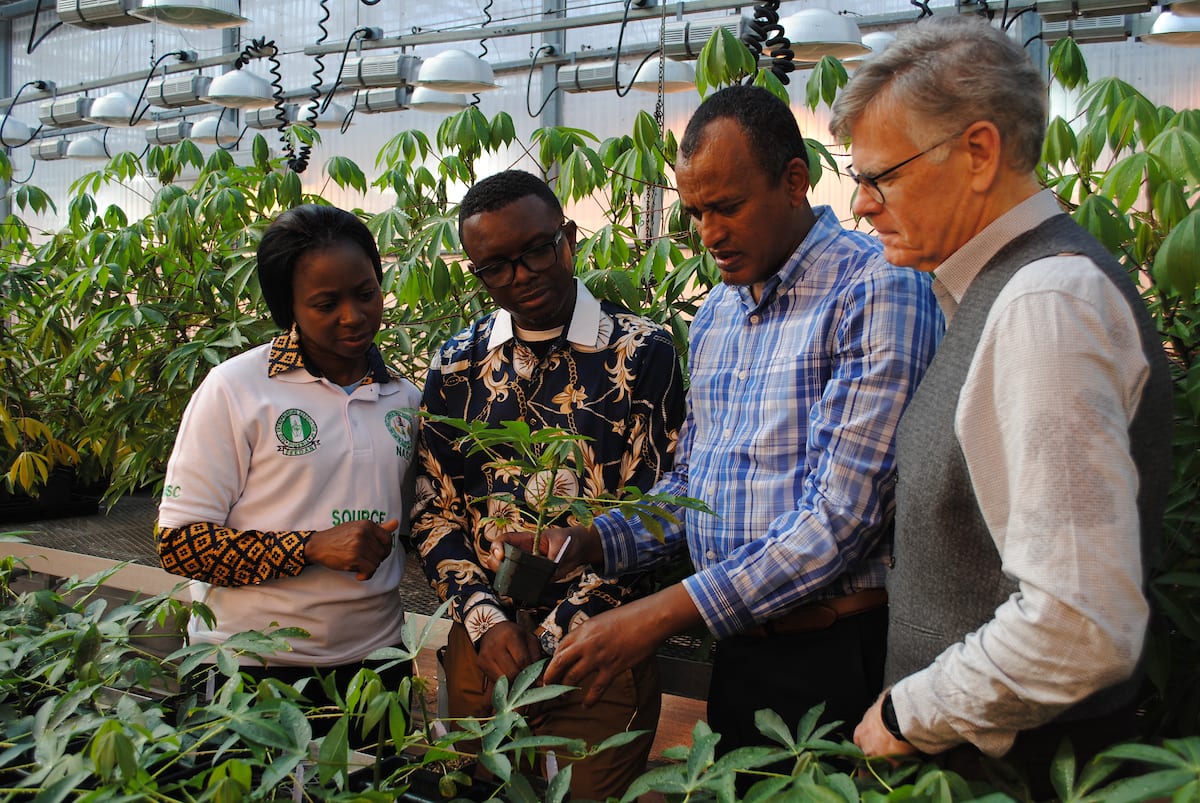
A visit with representatives from African organizations that were partners on the cowpea project. From left: Rebecca Mewase of the National Agricultural Seeds Council; Francis Nwankwo, PhD, of the African Agricultural Technology Foundation; Getu Duguma, PhD, and Don MacKenzie, PhD, both of the Danforth Center.
